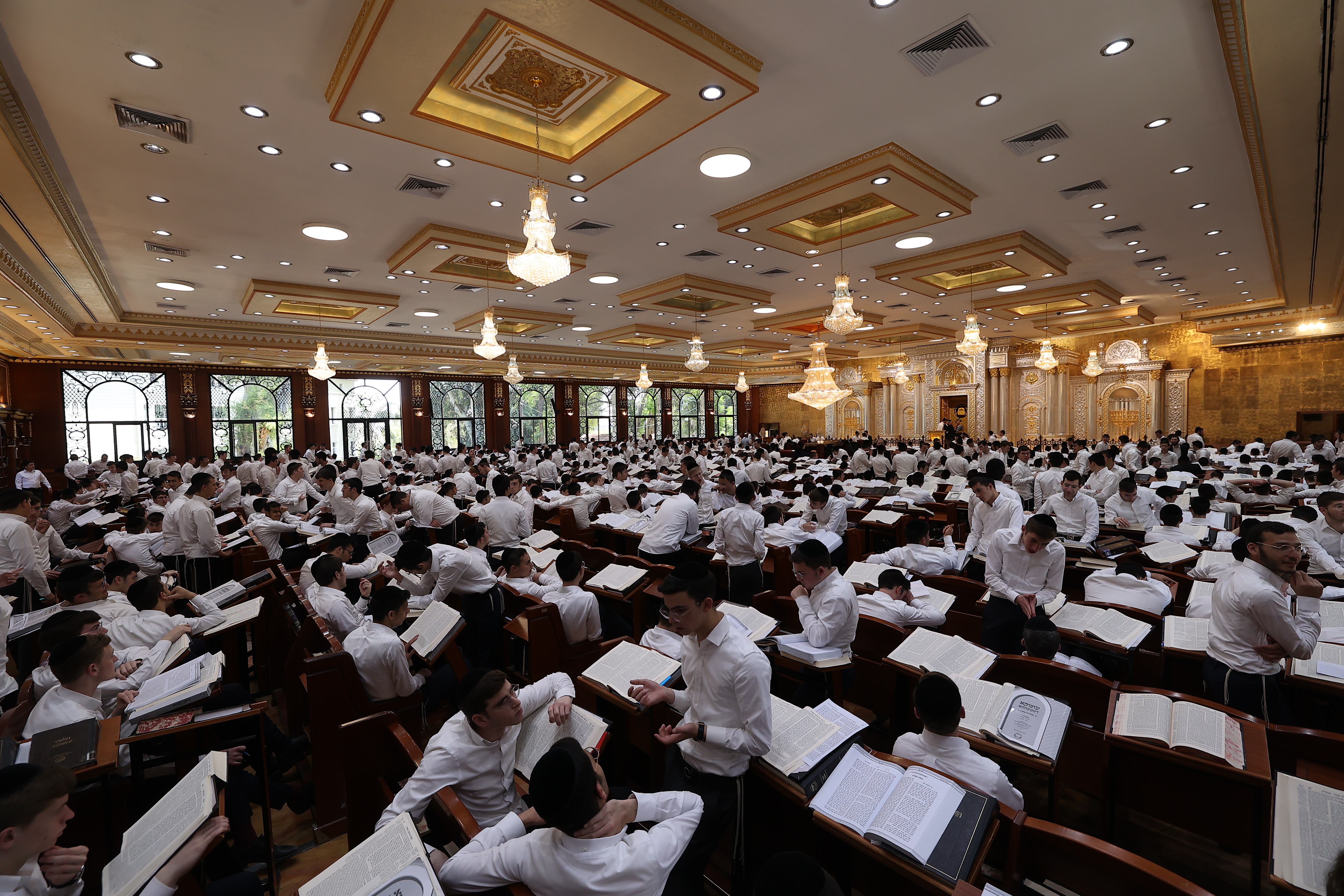The Iran War and Lessons for Israel's Education System
As the school system shuttered yet again in the war with Iran, Israeli society debates everything from safety to solidarity, but leaves out a critical virtue: the education of our children. Israel's ultra-Orthodox society, in spite of its refusal to be part of the Israeli collective experience, puts education at the core of its value system – what can the rest of the Israeli public learn from them?

Photo by Shlomi Cohen/Flash90
The war with Iran (Operation Rising Lion) abruptly ended the school year in Israel’s state-run education system (i.e., secular and national religious schools). Middle and high schools missed final classes and graduation ceremonies, while elementary schools have continued with partial remote instruction. Yet once again, ultra-Orthodox (Haredi) society remains absent from this collective Israeli experience. The school year in Haredi boys’ institutions is already one month longer than in the general system. Moreover, under the directive of the Lithuanian Haredi leader Rabbi Lando, in-person learning continued through the twelve days of war despite the IDF Home Front Command’s instructions to suspend in-person schooling. This situation led the Ministry of Education to announce closure and budgetary penalties for 80 educational institutions operating in violation of these instructions—a directive that was swiftly blocked by Deputy Education Minister Haim Biton.
This chain of events reopens wounds from the COVID-19 era, when yeshiva education continued under rabbinic orders and community events were held in defiance of health directives. The questions raised back then—about the Haredi community’s adherence to the law and its solidarity with broader Israeli society—are resurfacing now, amplified by growing frustration over Haredi draft evasion. Many Israelis are asking: why does the ultra-Orthodox public allow itself to step outside Israel's social contract and make its own rules?
Amid such grievances, one key issue is conspicuously absent from the discussion—the educational dimension. The focus on illegality and lack of solidarity dominates the public debate, pushing aside the very issue at its core: education.
From an educational perspective, Rabbi Lando’s directive reflects a principled and uncompromising stance by Haredi leadership, which views learning and education as supreme values—ones that protect the individual and preserve the social fabric. In hindsight, this position may be seen as educational foresight, especially in light of the well-documented emotional and developmental harms of the COVID-19 school closures. In this context, while it is fair to criticize the Haredi defiance of rules that the rest of the public has come to accept without question, it is also worth learning from the Haredi leadership’s unwavering insistence on the vital importance of education.
Certainly, during pandemics and wartime, government health and security directives must be followed to protect lives. Yet we must also ask: have we, in general Israeli society, given up on education too easily? Are we too quick to pull the trigger on shutting down schools—completely and for extended periods—during crises like pandemics, conflicts, and strikes, without first seeking safe and partial alternatives?
The ease with which Israeli society suspends education in emergencies reflects its attitude toward education in times of calm. Rabbi Lando’s directive is consistent with the deep Haredi view of education and its vision of the ideal graduate: the Talmud scholar (avrech). The entire Haredi boys’ education system is structured toward this singular goal, shaping individual values and sustaining a “society of learners.” Even when they allow all other studies to be postponed (including Haredi girls’ education), Talmud study must continue.
But what of Israeli society’s own commitment to its ideal graduate? The answer is found in its actions: Israeli taxpayers continue—without question—to fund the Haredi educational system, where students are not taught civics or social studies and do not participate in programs and national holidays that foster connection with the rest of Israeli society. It creates a situation in which the graduates have no connection to an Israeli civic ideal, and no familiarity with Israeli society or its democratic principles.
Instead of continuing to wage media battles that use education as a tool rather than treating it as the goal itself, it is time for a serious and profound conversation about the future of Israeli education, including Haredi education.
The central question that must be posed to Haredi leadership is this:
For how long—and under what justification—can you operate an educational system, overwhelmingly funded by the State of Israel, that turns its back on its core values, not to mention the core curriculum?
For how long will your graduates be educated solely around communal and religious values, while completely ignoring civic duties and rights? Why do you expect Israeli society to bear the civic burden in place of your education system's graduates?
And to Israeli society, this question must be asked:
How long will you continue to treat Haredi education—and education in general—as a side issue, rather than as the central matter that must be fought for?
